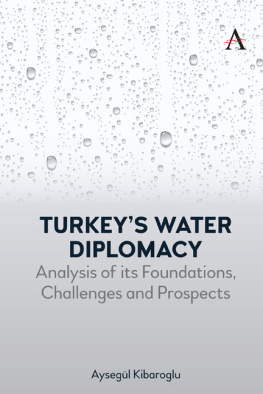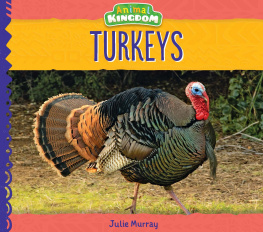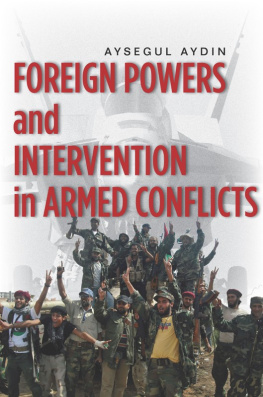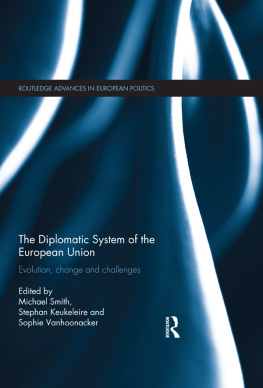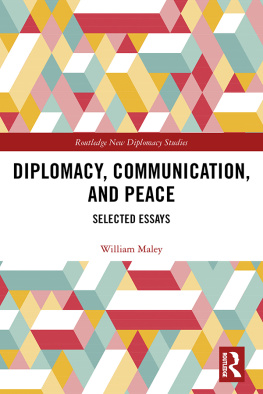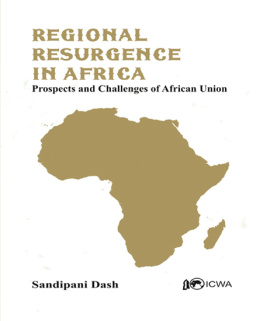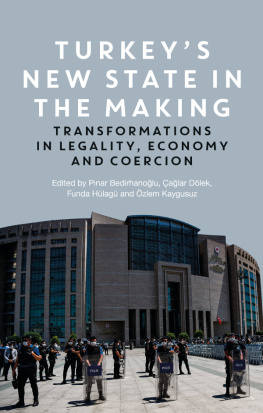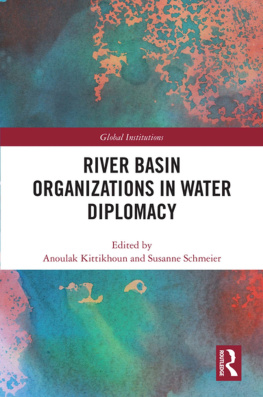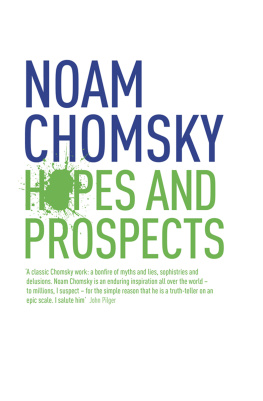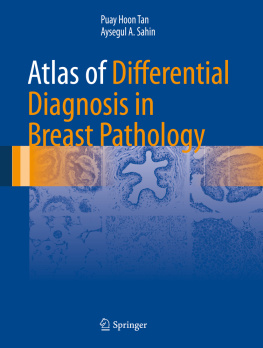Turkeys Water Diplomacy
Turkeys Water Diplomacy
Analysis of its Foundations, Challenges and Prospects
Aysegl Kibaroglu
Anthem Press
An imprint of Wimbledon Publishing Company
www.anthempress.com
This edition first published in UK and USA 2021
by ANTHEM PRESS
7576 Blackfriars Road, London SE1 8HA, UK
or PO Box 9779, London SW19 7ZG, UK
and
244 Madison Ave #116, New York, NY 10016, USA
Copyright Aysegl Kibaroglu 2021
The author asserts the moral right to be identified as the author of this work.
All rights reserved. Without limiting the rights under copyright reserved above, no part of this publication may be reproduced, stored or introduced into a retrieval system, or transmitted, in any form or by any means (electronic, mechanical, photocopying, recording or otherwise), without the prior written permission of both the copyright owner and the above publisher of this book.
British Library Cataloguing-in-Publication Data
A catalogue record for this book is available from the British Library.
Library of Congress Control Number: 2021930106
ISBN-13: 978-1-78308-811-9 (Hbk)
ISBN-10: 1-78308-811-7 (Hbk)
Cover image: Kindlena\shutterstock.com
This title is also available as an e-book.
CONTENTS
I would like to thank Professor Shafiqul Islam for inviting me to contribute to his series with the Anthem Press. I also extend my gratitude to the staff concerned at the Anthem Press for their keen support throughout the publication process.
I thank Liam Murray and Dr Caroline Fell Kurban for reviewing the earlier versions of this volume.
I acknowledge the contributions of MEF University staff and students, namely Research Assistant Dr Cansu Glec as well as students Ayse Deniz Oztrk, Bianca Isaoglu, Oguzhan Biderci and Ozge Bahar Coskun, in organizing the references section.
Last but not least, my heartfelt thanks go to my core and extended family for their patience, kind help and support all the through preparation process of the manuscript. I would like to specially thank my spouse Professor Mustafa Kibaroglu who has been enormously supportive and helpful in realizing this book.
| AFAD | Disaster and Emergency Management Presidency |
| CPET | Collaborative Programme Euphrates and Tigris |
| DGWM | General Directorate of Water Management |
| DSI | State Hydraulic Works |
| EIA | Environmental Impact Assessment |
| ET | EuphratesTigris |
| ETIC | EuphratesTigris Initiative for Cooperation |
| EU | European Union |
| FAO | Food and Agriculture Organization |
| GAP | Southeastern Anatolia Project |
| GAP RDA | Southeastern Anatolia Project Regional Development Administration |
| GOLD | General Organization for Land Development |
| HEPP | Hydro-Electric Power Plant |
| HSCC | High-Level Strategic Cooperation Council |
| ICMW | Islamic Conference of Ministers Responsible for Water |
| ILA | International Law Association |
| ILC | International Law Commission |
| IIWF | Istanbul International Water Forum |
| IWRM | Integrated Water Resources Management |
| JTC | Joint Technical Committee |
| TIKA | Turkish Cooperation and Coordination Agency |
| TMMOB | Union of Chambers of Turkish Engineers and Architects |
| MEF | Ministry of Environment and Forestry |
| MFA | Ministry of Foreign Affairs |
| MFWA | Ministry of Forestry and Water Affairs |
| MoU | Memorandum of Understanding |
| MWDF | Multi-track Water Diplomacy Framework |
| NATO | North Atlantic Treaty Organization |
| NGO | Non-Governmental Organization |
| OECD | Organisation for Economic Co-operation and Development |
| OIC | Organisation of Islamic Cooperation |
| ORSAM | Center for Middle Eastern Studies |
| OSCE | Organization for Security and Co-operation in Europe |
| PWC | Permanent Water Commission |
| RBMP | River Basin Management Plan |
| SDC | Swiss Agency for Development and Cooperation |
| SFG | Strategic Foresight Group |
| SIDA | Swedish International Development Cooperation Agency |
| SIWI | Stockholm International Water Institute |
| SUEN | Turkish Water Institute |
| TDA | Transboundary Diagnostic Analysis |
| UNDP | United Nations Development Programme |
| UNECE | United Nations Economic Commission for Europe |
| UNECE TWC | Convention on the Protection and Use of Transboundary Watercourses and International Lakes |
| UNEP | United Nations Environment Programme |
| UNESCO | United Nations Educational, Scientific and Cultural Organization |
| UNHCR | United Nations High Commissioner for Refugees |
| UNWC | United Nations Watercourses Convention |
| USAID | United States Agency for International Development |
| USSR | Union of Soviet Socialist Republics |
| WDF | Water Diplomacy Framework |
| WFD | Water Framework Directive |
| WWC | World Water Council |
| WWF | World Wide Fund for Nature |
| WWF3 | 3rd World Water Forum |
Diplomacy is a set of initiatives that aims at reaching agreeable solutions between parties who have diverging interests in potentially conflict-laden issues that might otherwise escalate into a hot confrontation. Diplomacy encompasses the processes and institutions by means of which national interests and identities of sovereign states are represented to one another (Wiseman and Sharp ). In line with these definitions, this book aims to assess the processes and institutions in Turkeys water diplomacy framework with a specific focus on its evolving position vis--vis international water law.
Water is vital to many levels of human survival. It fluctuates both in space and time, and has multiple and conflicting demands in terms of its use. This means that flows crossing international boundaries can be a source of tension between states (Wolf , 13).
The main objective of this book is to elucidate Turkeys water diplomacy framework with its key actors and guiding principles. Thus, the analysis adopts an institutionalist approach, by presenting and emphasizing the role of the legal and institutional foundations upon which Turkeys water diplomacy framework rests. It carries systematic and accurate background information on Turkeys transboundary water relations from a historical and geographical perspective. It also includes a thorough analyses of Turkeys position towards international water law. Turkeys state practice in customary international water law, as well as treaty law, has been critically analysed.
The book also identifies non-state actors (i.e. Track II, NGOs, academia) and the salient processes in Turkeys water diplomacy framework. Identifying such actors and processes not only contributes to the existing academic body of knowledge, but also has the potential to bolster cooperation over Turkeys transboundary waters. Finally, the book comes up with policy-relevant recommendations for tackling with the growing challenges in Turkeys transboundary water relations.

